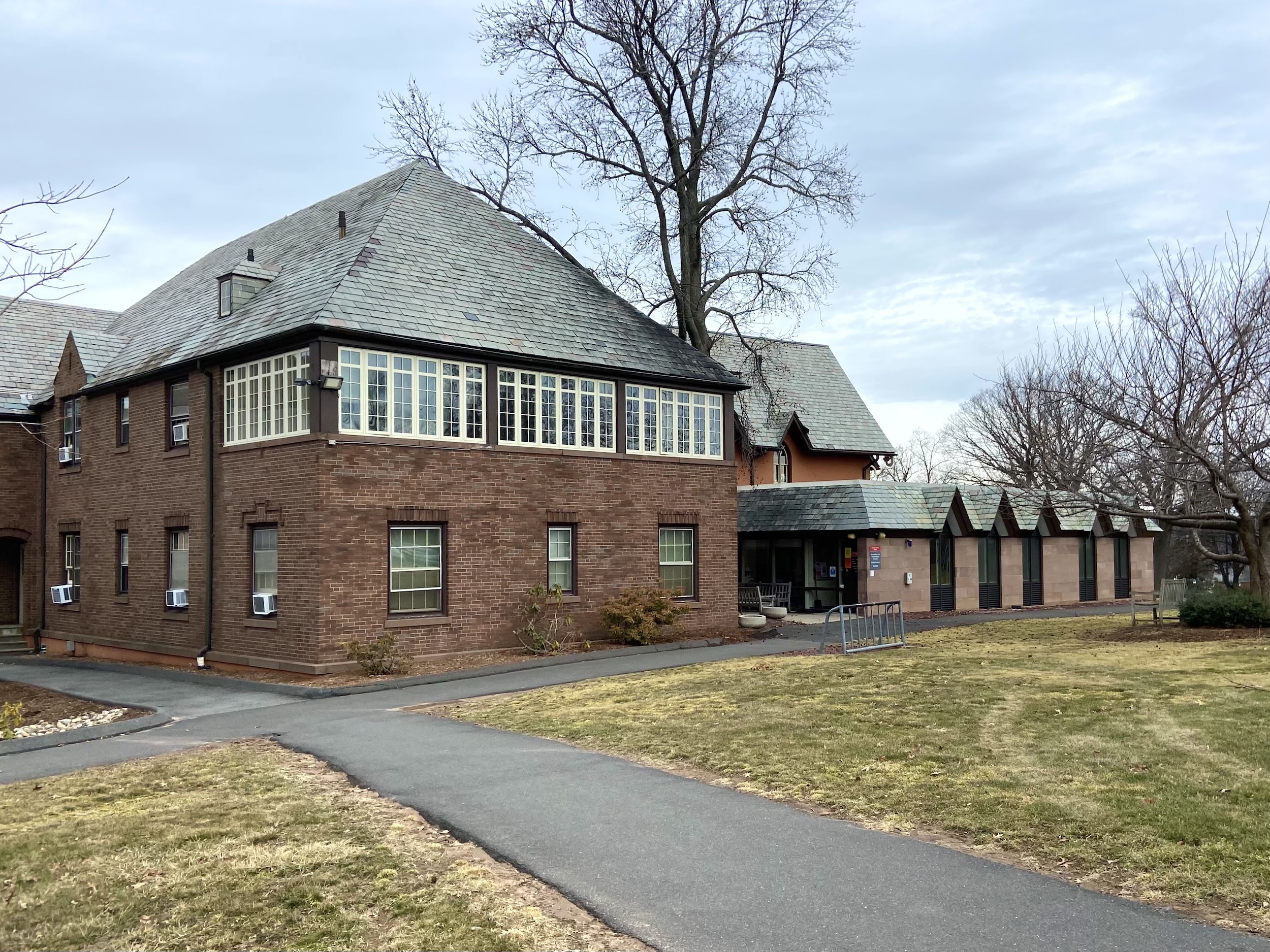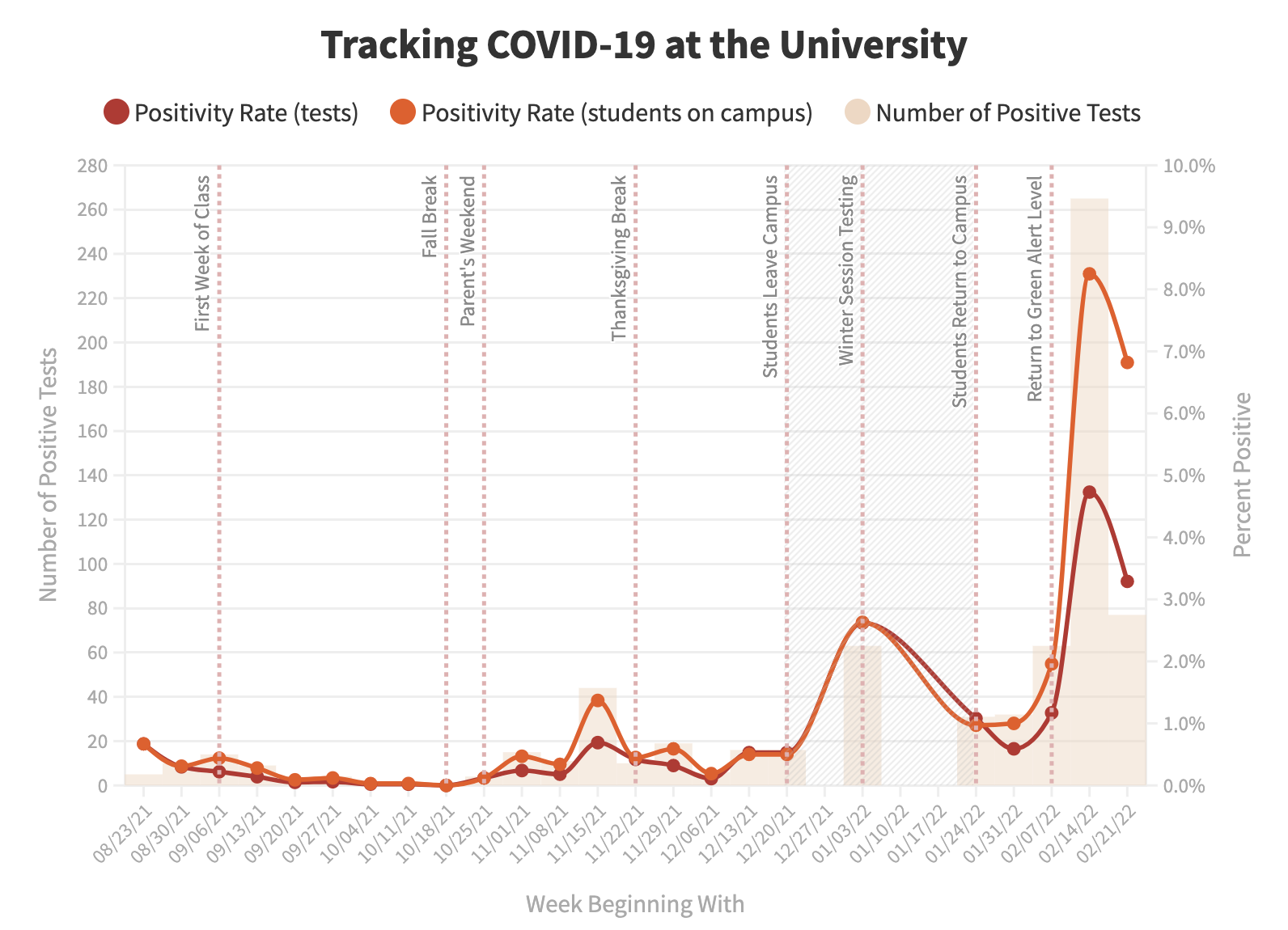
c/o Alexandra Turtil, Assistant Photo Editor
The University reinstated indoor dining on Thursday, Feb. 24 after having temporarily restricted students to grab-and-go only. The University had closed indoor dining on Wednesday, Feb. 16, after raising the COVID-19 alert level to yellow due to a sharp increase in students testing positive on campus.
As of Feb. 24, the University is still at the yellow alert level, with 219 active student cases and a positivity rate of 3.29%. Seventy-seven students have tested positive since Monday, Feb. 21, contributing to a positivity rate of 2.42% for the entire semester so far.
“Over the past week we have seen the number of students cases peak and then begin to decline,” Associate Vice President for Student Affairs and Dean of Students Rick Culliton wrote in an email to The Argus. “The peak in positivity rate was last Tuesday and Thursday and the numbers have come down since.”
According to Culliton, the Davison Health Center will no longer be alerting students of a positive test via phone call.
“A student who has a positive test result via Beckham Hall will receive an email with instructions on where to go in their Wesportal to report any symptoms, receive instructions for isolation and any dietary needs they may have,” Culltion wrote. “Students who have their own bedroom are able to isolate in their own room while those who share a bedroom will be relocated to the inn or other space on campus. About 65-70% of students live in single rooms while the remaining students share a bedroom and would need to be relocated if they test positive.”

c/o Sam Hilton, Assistant News Editor
The University has also instituted new contact tracing protocols. Students who test positive for COVID-19 will be asked to contact everyone they have been within six feet of for 15 or more minutes within the past 48 hours. In the past, the Davison Health Center directly called close contacts, keeping COVID-19 test results confidential.
“We have found that the most effective method of contact tracing is through personal outreach from those who test positive,” Culliton and Medical Director Dr. Tom McLarney wrote in a campus-wide email from the Pandemic Planning Committee on Feb. 24. “This will be our approach for the entire campus community, effective immediately.”
Culliton believes that most cases come from students socializing indoors without their masks on. With staff cases remaining in the single digits, the surge in COVID-19 cases at the University has been concentrated among students. Culliton credited high levels of masking as an indicator of the low student-faculty transmission rate and explained that the University would continue to monitor the changes in the number of cases on campus.
“We are grateful for the cooperation of students over the past week as we worked to minimize the spread of covid and the resulting disruption to students by having to isolate,” Culliton wrote. “We will continue to monitor the cases on campus and make adjustments to our protocols in the coming days.”
The University continues to require students to test twice a week at Beckham Hall, which is open for testing from 9 a.m. to 4:30 p.m. on Monday through Friday every week.
Aris Dashiell can be reached at adashiell@wesleyan.edu.